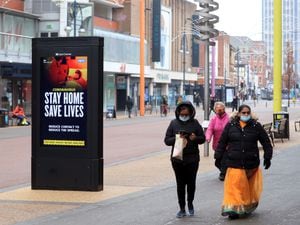Should we be worried about new coronavirus variants?
While mutations are mostly regarded as harmless, a handful of variants have emerged that have caused concern among experts.

Ever since the new coronavirus first appeared in Wuhan, China, in 2019, it has mutated thousands of times resulting in countless variants.
Scientists say it is quite common for viruses to mutate and more often than not, these mutations are harmless.
But in the past few months, a handful of variants have emerged that have caused concern among experts.
These include a UK variant, a South African variant and a Brazilian variant, and all of these appear to be more infectious than the original one that started the pandemic.
Researchers around the world are studying these mutated versions to understand more about the dangers they pose.
Are the new variants more dangerous?

Experts say that at present, there is no evidence that any of the new variants cause more severe disease in the vast majority of people who become infected with Covid-19.
But much like the earlier versions of the coronavirus, the risk of serious illness and death is highest for people who are elderly or have pre-existing health conditions.
With regards to the new UK variant, Sir Patrick Vallance, the Government’s chief scientific adviser, recently said at a Downing Street press briefing that it could increase the mortality rate by nearly a third for men in their 60s who have Covid-19.
However, he added that the evidence on this is not strong and that more detailed studies are ongoing.
Meanwhile, both the Brazilian and the South African variants have raised concerns among scientists that it may be possible for people to become infected with these variants – even if they have had Covid-19 in the past.
How widespread are these variants?
The UK variant has become the dominant coronavirus variant in Britain and has spread to more than 50 other countries.
And the South African variant has also been found in at least 20 other countries, including Britain.
Gene sequencing has so far uncovered 105 cases of this variant in the UK, with 11 of the cases not having any links to foreign travel.
This has prompted concerns that the South Africa variant is spreading in the community.
While the Brazil variant is yet to be detected in the UK, some epidemiologists believe it may already be here.
What types of mutations do these variants have?
All three variants have undergone changes to the spike protein – the part of the coronavirus which acts like a tiny molecular key, allowing it to enter human cells.
Scientists believe these changes make the variants much more efficient at infecting humans.
Research from Public Health England (PHE) suggests that the UK variant, which was first detected in Kent in September 2020, may be up to 50% more transmissible or infectious than the previous version of the virus.
Both South African and Brazilian variants contain a mutation to the spike protein known as E484K – which may help the virus evade parts of the immune system called antibodies.
Experts believe this mutation may make vaccines less effective, although the jabs may still be able to prevent severe disease.
A report from Public Health England has revealed that a handful of cases of the UK variant have been shown to contain the E484K mutation as well.
Will vaccines still work?
Studies are ongoing to see whether coronavirus vaccines are able to protect against new variants.
Early results suggest that Pfizer/BioNTech as well as Moderna jabs offer some protection against new variants but clinical studies are needed to confirm that.
Data from clinical trials from from Novavax and Janssen jabs – also appear to show some level of protection against severe Covid-19 infection caused by the variants.
For the Janssen vaccine, the level of protection against moderate to severe Covid-19 infection was found to be 72% in the United States arm of the trial, 66% in the Latin American arm and 57% in the South African arm, suggesting some level of protection against the Brazilian and South African variants.
Meanwhile, in the Novavax trial, the jab was found to be 60% effective in preventing mild, moderate and severe Covid-19 in the South African arm of the trial, where most cases of Covid-19 have been the South African variant.
While current coronavirus vaccines have been designed around earlier versions of the virus, experts believe they should still work against the new ones, although the immune response may not be as strong.
They say that as with flu, vaccines can be tweaked within months, or even weeks, to offer protection against new and emerging coronavirus variants.
What is the UK Government doing?
Scientists at the Covid-19 Genomics UK Consortium, who spotted the UK variant last year, are sequencing hundreds of coronavirus genes every day to see how the virus is evolving and keep track of any mutations that may be of concern.
Health Secretary Matt Hancock said the Government is working closely with pharmaceutical firms in case vaccines need to be tweaked to accommodate new variants.
He said: “We have confidence that modifications to vaccines, should they be necessary in large scale, will be available more quickly than the original vaccines.”





